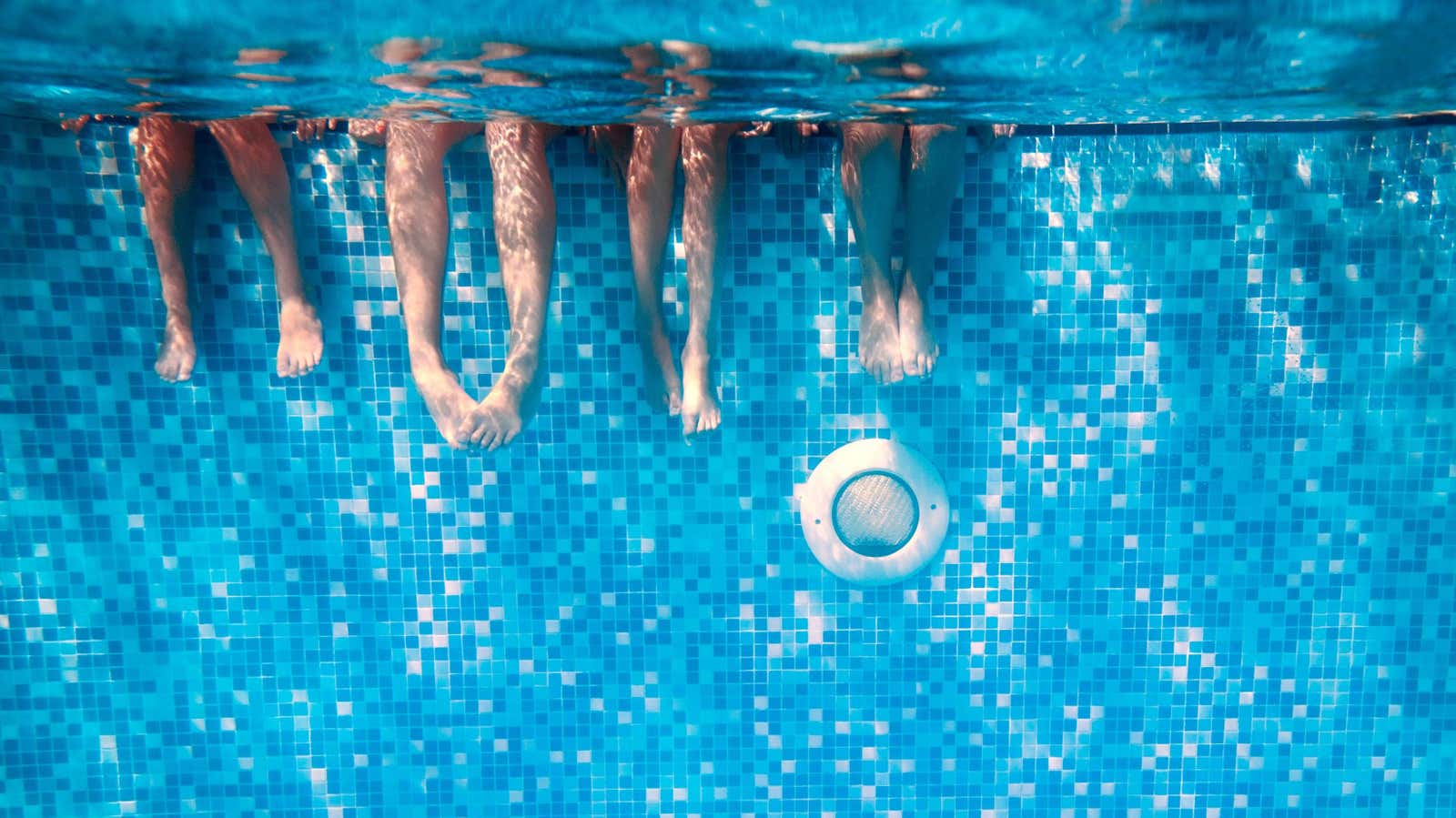How to Detect and Treat Chlorine Rash

If you think about it, swimming pools are pretty gross. And as much as we love the idea of swimming in a bunch of chemicals – in this case, chlorine – it’s probably preferable to anything else that would have been brewed there without them. So, yes, chlorine is necessary and important, but that doesn’t mean we should enjoy its pungent scent or what it does to our skin.
If you are swimming in an outdoor pool, your biggest skin problem is probably related to UV rays and sunburn. (It should be so.) But even with a lot of SPF, you might find your skin particularly tight, dry and flaky as you walk out of the pool. There is a good chance that this is due to chlorine. And some people react much more strongly than others, including a rash. Here’s what you need to know about chlorine rash, including how to recognize and treat it.
What is chlorine rash?
First things first: According to the American College of Allergy, Asthma and Immunology (ACAAI), a chlorine rash does not mean you are allergic to the chemical.
This is because the rash is actually “irritating dermatitis,” which is similar to a chemical burn and is caused by chlorine hypersensitivity. As it turns out, chlorine is a natural irritant, which is why your skin feels so tight and dry after you leave the pool. Oh, and if you already have any type of dermatitis, chlorine can make the situation worse, the ACAAI notes.
What does a chlorine rash look like?
Typically, a chlorine rash includes at least one of these delightful symptoms, the ACAAI states :
- Skin redness, soreness, inflammation, and / or itching at the site of contact
- Skin lesions or rashes
- Scales or crust on the skin
- Hives
How is chlorine rash treated?
The ACAAI recommends treating chlorine rash in the same way you treat other skin irritations and sensitivities: “rinsing the affected area with clean water to try to remove any traces of remaining irritant” – in this case, with pool water.
If you have a more serious case and this does not help, it is advisable to see a doctor or allergist unless it is related to an allergic reaction. Depending on the situation, your healthcare professional may prescribe a corticosteroid cream (although if this happens, it should be taken as directed and not overused). If you have hives, your doctor may advise you to take an antihistamine such as Benadryl.
Another reason to wash off with a quick shower after you leave the pool.